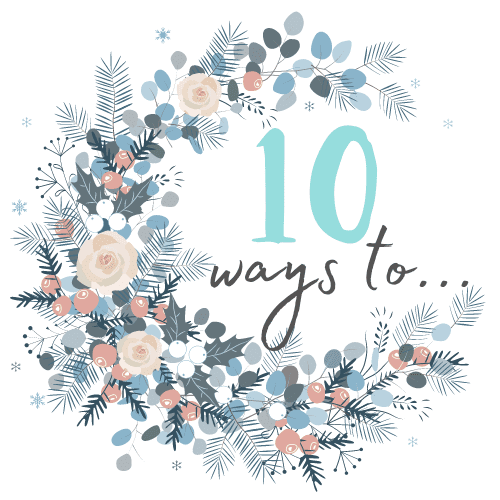This is a collaborative post
Like many people across the UK at the moment, I am feeling almost as uncomfortable with the easing of lockdown as I was at the point it was announced. Having spent 13 weeks at home and tackled the horrible anxiety, lack of sleep and panic at the start of lockdown, I am now experiencing similar mental health symptoms at the other end; with concerns about what the future holds for all of us and nervousness about second waves and life returning to ‘Normal’
Here are just some of the mental health challenges we might all be facing post lockdown and some simple steps to help tackle them.
The boundaries between home and work life are blurring….
The children may or may not be going back to school, but your employer may be asking you to work from home for the foreseeable future. Having been working from home for so long; you may be finding it hard, particularly with modern technology and the 24/7 availability that comes with it. Remember that if you were in the workplace you’d most likely take a lunch break, chat to a colleague at the water cooler and log off on time to go and collect the kids. Just because you are at home doesn’t mean those elements don’t apply.
How to help – There is a tendency to feel like you need to be instantly available whenever anyone contacts you, for fear of looking like you’re not working or that you are skiving when working from home. The reality is – you don’t. Try and use your diary to mark clear work and non working times and take that lunch break – getting outside for a walk or some fresh air to have a break can do the world of good for your mental health. Avoid checking your work emails on your phone in the evenings or weekends – you will inevitably get dragged back into something and its important to have a differentiator between work and home life, even more so when there is no physical distance. Where possible, work in a set space away from the rest of ‘family life’ so you can shut the door and ‘leave the office’ at the end of the working day.
Lack of physical contact…
To put it simply – I just want to give my Dad a hug, he’s been shielding since mid March, lives alone and it pained me so much to not go and see him on the anniversary of my Mum’s death. 🙁 Whilst we have been able to go and see him socially distanced in the garden, I’d love to be able to give him a big hug. Whilst in theory he could join our family bubble, we both feel safer avoiding physical contact.
How to help – Although not the same, you can show affection to your loved ones in other ways. Ensuring regular virtual face to face contact can really help. Socially distanced visits can also be a huge pick me up to those living alone. My Dad even put on a new shirt and joked that it was like waiting for a prison visit. Don’t underestimate the power of even a visit from the other end of the garden.
Adapting to the new normal
I felt strangely emotional visiting a local National Trust location Baddesley Clinton this week – the familiar hustle and bustle of voices, laughter and conversation, except it wasn’t and isn’t normal at all. One way systems, social distancing and hygiene measures – I felt both happiness and sadness that this is the reality of life for the short term at least.
How to help – Remember that hopefully the changes to our freedom and daily life aren’t forever. However, they are needed, to help sustain a long term healthy future for all of us. Whilst it’s perfectly normal to miss our old normal; now is also a great time to think about the elements of our old normal that we don’t miss; and how we want our lives to be going forward.
Fear of venturing out…
After being at home and only within the four walls or perhaps your garden for the last 13 weeks, the prospect of venturing out for the first time may also be a little daunting! You have no idea what to expect, may be worried about others coming close to you, or worried about the fear of catching COVID-19 or passing it on to someone you care about.
How to help – Take one step at a time. Set yourself realistic goals – e.g. go for a walk, go on an outdoors activity, go to your local shop etc. In many cases, the unknown of going out and what it would be like is far worse than the reality. I was so pleasantly surprised when I headed out for the first time this week. Whilst I am unlikely to head to my city’s main shopping centre any time soon, I now feel much more comfortable with outdoors activities. Slowly but surely I will ease my way back out. Exercise and physical activity can also keep your immune system strong so download the couch to 5k app, or find a personal trainer near you to help keep you moving and release some endorphins.
Fear of a second wave…
For me this is the biggest fear. Children returning to school, non essential shops reopening, the expected crowds of people heading to pubs and leisure venues, not to mention the huge number of people not following the social distancing guidelines and cramming onto our beaches today. I am worried about the impact of this and whether a second wave will happen. Everything seems to be being opened up quickly.
How to help – Whilst we can’t necessarily control a second wave, we can take steps to try and prevent this – keeping socially distanced, ensuring good hygiene and hand washing and reducing the amount of contact we have with others. That said, the science is showing that numbers have hugely reduced and it all comes down to a level of risk and how much risk we are prepared to take.
Anger and frustration towards others
I am particularly guilty of this. I feel INCREDIBLY frustrated and angry when I see people flaunting a blatant disregard for the rules, particularly as many are on furlough and being paid to stay safe at home and I can get myself a wee bit worked up! These feelings however have no positive benefit.
How to help – remember you can only control what you do, and therefore whilst difficult, you need to focus on the things you have influence over, and not those who you do not know. Don’t get dragged into public debates or comment on social media posts, it will just raise your blood pressure and make you feel worse. Vent in private or to a trusted friend if you must. (I must lol)
Information Overload
Just like at the start of lockdown, there is a LOT of information to take in. Whilst the briefings have been relatively clear, there is still some confusion about what can and can’t be done and when, and media in general can add to this confusion, announcing things before they are officially confirmed or predicting what part of the lifting lockdown comes next. This huge amount of new information to process can be a lot to deal with, causing your mind to race at bedtime when you should be trying to sleep.
How to help – choose your sources carefully. In the same way you know never to trust a Daily Express severe weather warning (TEN FEET OF SNOW TOMORROW!), remember that there are some publications who’s content you should read with caution. Stick to the official announcements and if things are causing you to become anxious or stressed, turn off the TV, stick to the briefing updates and read a book. Some things you need to know, others you do not.
Panicking about lost routines…
After so long at home, all of our routines are out of the window. Suddenly we’re dealt with the prospect of the schools going back and my kids are still going to bed at 9.30pm. Its going to take a while to adapt. I don’t want to go back into the office. Ive found a new sense of work life balance and I am loving the freedom that it has given me to exercise in the mornings.
How to help – Accept that just like it was at the beginning, returning back to our normal routines will involve a period of adjustment for everyone. You’re likely to have a week or two where it feels impossible, but you will get there. If you haven’t worked flexibly before – now may be a good time to submit that flexible working request, particularly if you have proven that working from home or around your childcare has worked efficiently.
Facing pressure to go out…
Lots of people are now feeling more comfortable meeting up in groups or booking tables for the pub on July 4th. You may not feel comfortable yet, but don’t want to seem like a prude or that you are being over cautious.
How to help – Remember that everyone’s situations are different. Just because one person feels comfortable doesn’t mean that you need to. You don’t need to justify your views to anyone, just do what feels right for you, your family and your individual circumstances.
Feeling like you’re failing at everything…
For the last 13-14 weeks you’ve been attempting to balance home life, home schooling AND your day job all at the same time and its been bloody hard. As a result you feel like you’ve not really done anything as well as you could have done. You’ve been distracted at work, may have been less responsive, you may have been shouty Mum more times than you care to mention and your patience may have started to wane.
How to help – Celebrate your achievements – remember when the thought of the 6 week holidays was enough to make your 2019 self break out in a cold sweat, and the thought of school closures was a terrifying prospect?? Well you’ve managed it for THREE WHOLE MONTHS. You’ve kept your family safe, you’ve survived with whole days around your other half and the kids (for the main at least) are still smiling. You’ve done bloody amazing. Give yourself a break!!
Finally, remember that you are not alone. There are so many people who will be feeling the same as you. If your children themselves are showing signs of anxiety or fear; here are some other sources which may help:
- Mentalhealth.org.uk – Talking to your children
- Mind UK – A handy guide for young people – this resource is great for young people to read themselves as it explains in simple and age appropriate terms about coronavirus and what they can do to help.
- Coronavirus animation for children
- Coronavirus video for children
- Governments official guidance for parents on how to support children’s mental health.
- Children’s Society advice and support for parents and young people
- Young Minds – a guide to Supporting your child during the coronavirus pandemic.
- NSPCC Coronavirus advice and support for parents and carers.
Talking and reaching out
One of the main challenges facing people who have signs and symptoms of mental health disorders is a reluctance to talk. Many of us wouldn’t think twice about telling a friend or work colleague if we had a migraine or a twisted ankle, but we shut down when it comes to speaking about mental health. Talking can help you to express yourself and channel emotions and it can also give you a different perspective.
If you want to chat about how you’re feeling or the symptoms you are experiencing, you can open up to somebody you know or seek professional advice. Visit your GP or contact practices or clinics like The Awareness Centre that offer services such as counselling and psychotherapy. You can choose between virtual and in-person consultations or speak to a therapist or counsellor over the phone. Reaching out is often the hardest step, but it paves the way for being more open about mental health and it will enable you to access the support you need.






